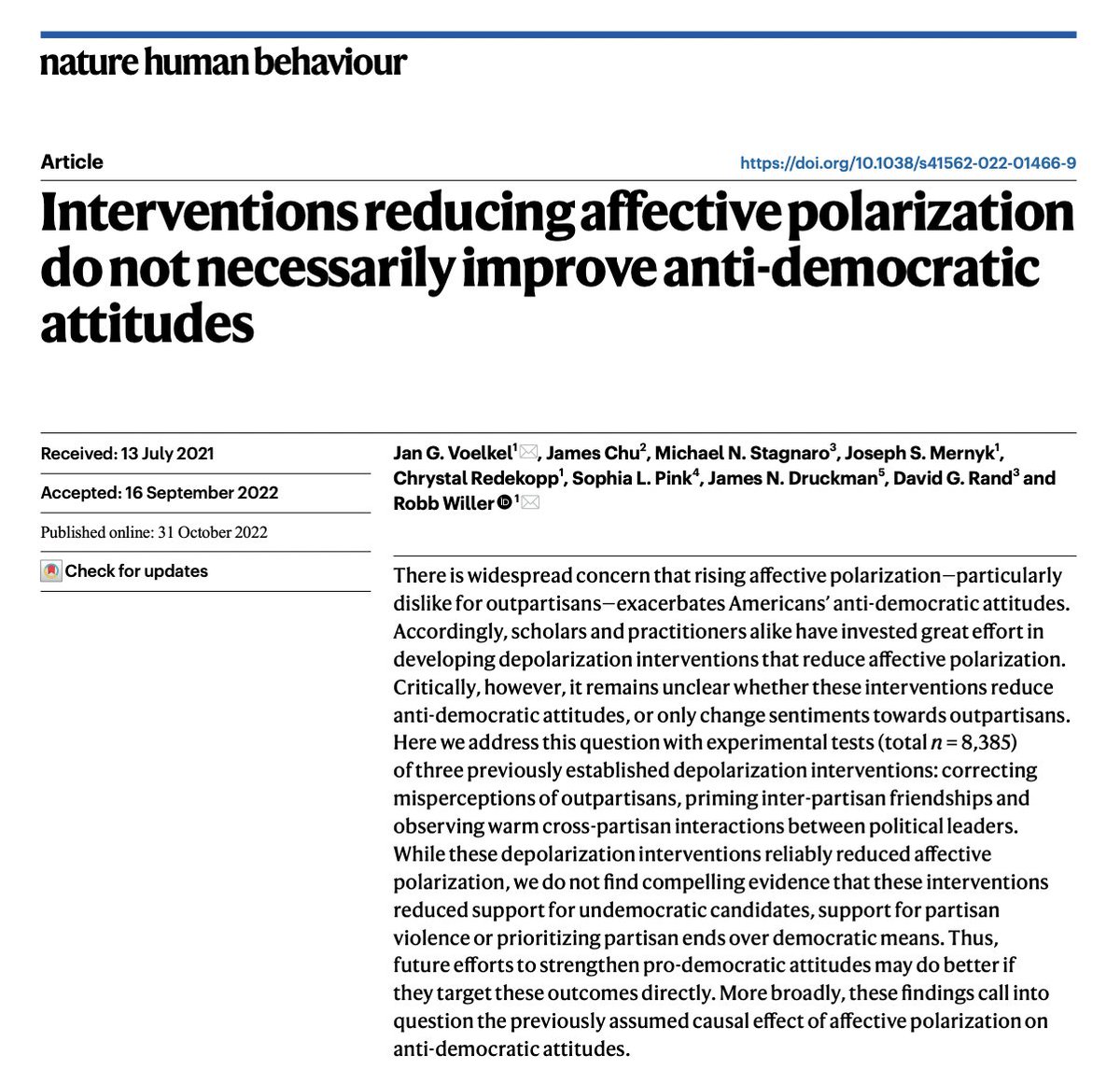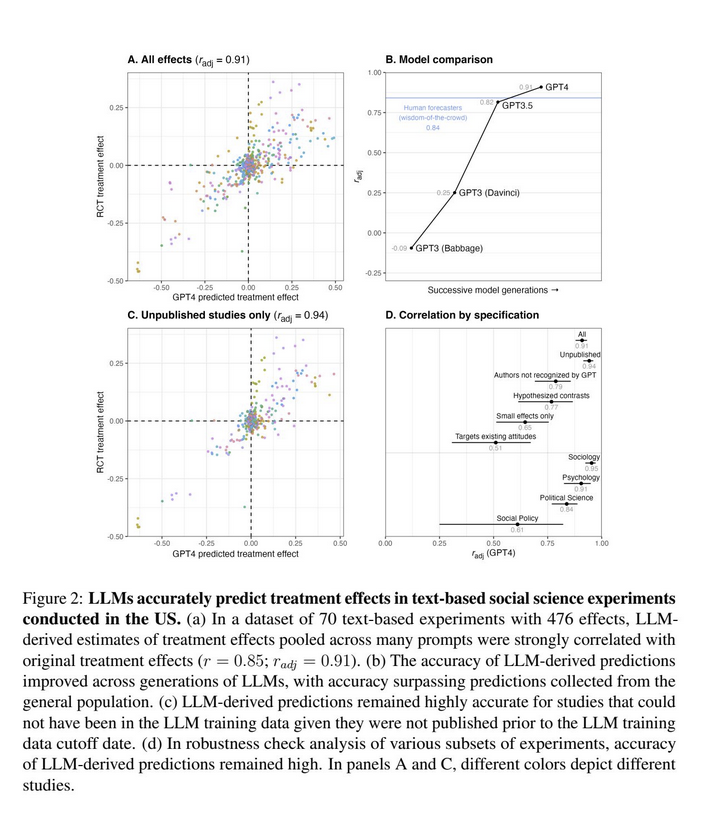
Isaias Ghezae
@ghezae_isaias
Psychology PhD student @Harvard. Prev: @pascl_stanford @UCSBpsych
ID: 3287303132
22-07-2015 07:29:15
321 Tweet
487 Followers
506 Following

Does any shift of voters of color to the GOP mean that race is less important to electoral politics? That's a common argument. In fact, it's the opposite. We are less polarized by race, but MORE polarized ABOUT race. MIchael Tesler and me Good Authority: goodauthority.org/news/america-i…


Excited to see this new article out with @leahchristiani in Research & Politics! Inspired by cases like Eric Adams in NYC, we look at how tough-on-crime candidates’ identities (race + gender) impact their favorability among progressive voters. journals.sagepub.com/doi/10.1177/20…



🚨📢 Super excited to share our new preprint 🚨(w Luke 🐝 Hewitt Isaias Ghezae & Robb Willer) Assembling a large archive of 70 experiments (476 effects) conducted in the US, we ask if LLMs can be leveraged to predict results of social science experiments. See this 🧵for more:

A new study led by Ashwini Ashokkumar, Luke 🐝 Hewitt, Isaias Ghezae & Robb Willer of our Politics and Social Change Lab evaluates whether LLMs can be leveraged to predict the results of social science experiments. Explore key takeaways👇 x.com/RobbWiller/sta…


New in PNAS Nexus: Correcting misperceptions of the out-party is often recommended as a strategy to reduce polarization, but it may not be as effective as previously thought Sean Westwood Yphtach Lelkes Nic Dias Kristian Frederiksen Lea Pradella Laurits Aarslew academic.oup.com/pnasnexus/arti… 🧵1/5




Google's #NotebookLM quickly made a "podcast" of the paper, which supports the idea that GPT-4 can perform A/B testing by mimicking human behavior in experiments. Amazing! bit.ly/3MUJTSq Ashwini Ashokkumar Robb Willer Luke 🐝 Hewitt Isaias Ghezae





🚨 Strengthening Americans’ Democratic Attitudes🚨 For the last 4 years, we crowdsourced and tested ideas for ⬇️ antidemocratic attitudes & partisan animosity. A 🧵 on all papers, published/IP Science Magazine (🆕tinyurl.com/sdcsci🆕), PNASNews (2x), Nature Human Behaviour (2x).


Very excited to share that the main paper from the Strengthening Democracy Challenge is out today in Science Magazine! It’s been a long road to get to get to this point. 🧵👇 science.org/doi/10.1126/sc…











